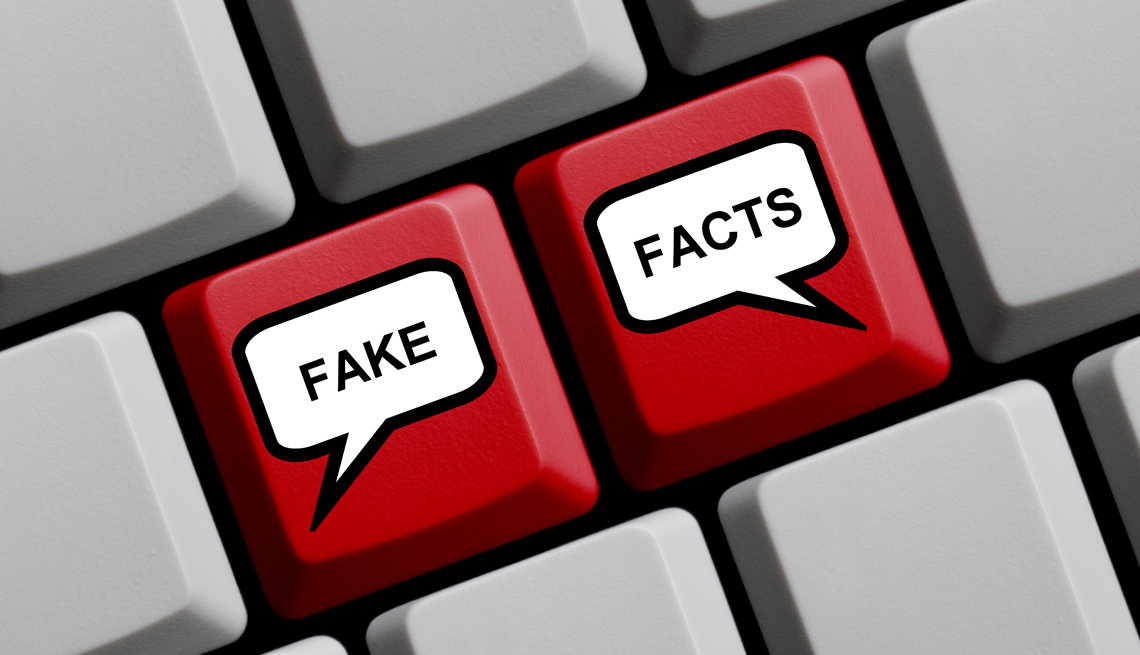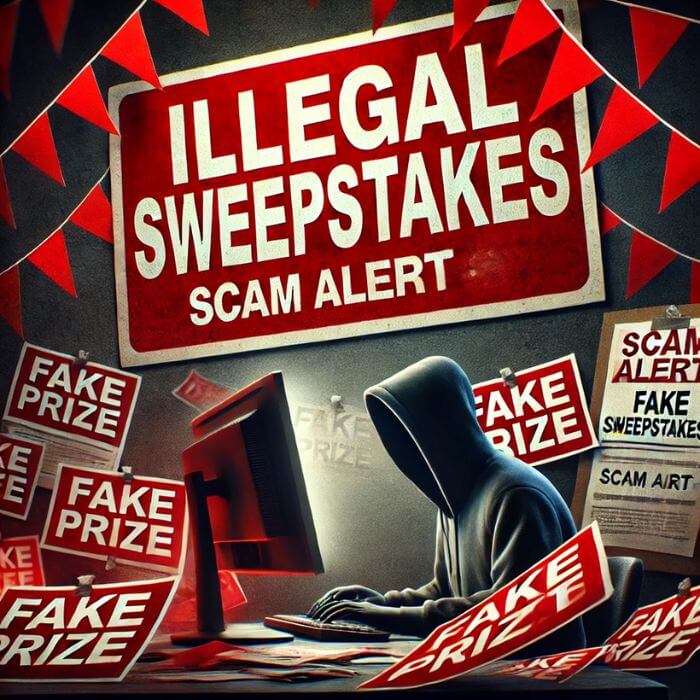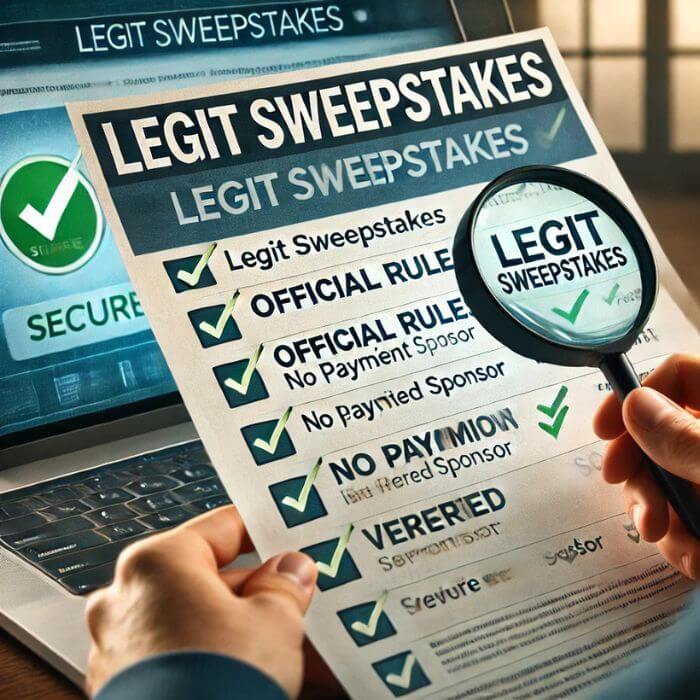Legitimate giveaways always comply with the law. Do some research on the contest sponsors and rules so you can choose a genuine giveaway:
Which Sweepstakes are Legitimate? Companies can use sweepstakes to generate interest in their business and build relationships with them. But not all contests are trustworthy. Some contests can be fake, designed to waste your time or even steal your money. So it’s important to think carefully about which contests to enter.
Legitimate contests follow strict rules set forth by law. For example, they make sure the rules are clear, you don’t have to buy anything to enter, and they don’t use deceptive tactics. To make sure a sweepstakes is genuine, check with the company that is sponsoring it and read the official rules very carefully.
This section will give you useful information to help you identify genuine sweepstakes and stay away from fakes, so you can enter with confidence.

Credit: www.aarp.org
Table of Contents
Factors To Consider When Identifying Legitimate Sweepstakes
A common way for companies to sell their products, services, or brands is through sweepstakes. However, there are some differences between contests. Some may be real, while others may be scams designed to take advantage of people who don’t know what’s going on.
When looking for a genuine contest, here are some important things to keep in mind:
Clear rules and regulations
It’s best for a sweepstakes to be simple and straightforward. It’s important to have clear rules about who can enter, how to enter, when, what the dates are, what the prizes are, and how the winners will be selected. When everything is clear, everyone knows what to expect. There are no misunderstandings or anger.
Presence of an official website
A genuine sweepstakes will have an official website with clear information about the event and good contact information. This shows how much the sponsor cares about the game and is willing to spend time and money to make it credible.
It also provides a way for people to learn more about the sweepstakes and enter with confidence.
Clarity in Contact Information
A genuine sweepstakes should have easy-to-find contact information for the sponsor or organizer. This information should be easy to find on the main website or some other means of communication. Anyone who has questions, concerns, or problems during or after the event should contact the sponsor or promoter.
Genuine Sponsors and Promoters
A genuine sweepstakes should have sponsors and organizers who are real and easy to check out. The sponsors of this contest should be well-known businesses or groups that have successfully run contests in the past. Sponsors or unknown groups should be cautious when offering sweepstakes to people.
Transparency in Winner Selection
For a sweepstakes to be legitimate, the rules for selecting winners should be clear and fair. It is very important to ensure that the selection method is fair and random. The sweepstakes rules and laws should make the process very clear. Winners should not be selected based on how much it costs to purchase the contest-related product or service, but rather on their ability to compete.
To find a genuine sweepstakes, you need to look for a few other things, such as clear rules and regulations, an official website, clear contact information, real sponsors and organizers, and openness in selecting winners. Sweepstakes entrants don’t have to worry about being scammed as long as they are careful and vigilant.
Common Red Flags of Illegal Sweepstakes

Anyone can enter a sweepstakes to win a prize by entering a contest or drawing. But not all contests are real, and it’s important to know the warning signs so you don’t get scammed or lose money. Here are some common signs that a contest isn’t real:
Upfront payment requirement
- Sweepstakes that ask for fees or payments up front are usually not real and are scams.
- You might also call these fake contests “lotteries” or “prize” scams.
- It’s important to remember that a genuine sweepstakes will never ask you to pay to enter.
Unsolicited Notifications of Winning
- If someone sends you a text or alert saying you’ve won a sweepstakes you didn’t enter, it’s likely a scam.
- Some of these fake alerts may also ask for money or personal details to claim the prize.
- Legitimate sweepstakes will only contact winners through the information they provided when they entered.
Unclear or Questionable Rules and Regulations
- All legitimate sweepstakes should have clear rules and instructions so that things don’t get confusing or misunderstood.
- Rules and regulations for sweepstakes that are unclear or seem questionable may indicate that they’re not genuine.
- Before entering a sweepstakes, it’s important to read and understand the rules.
Lack of Contact Information
- Many times, fake sweepstakes don’t have contact information for the sponsor or promoter.
- Since there is no contact information, it can be difficult to report problems or ask questions about the sweepstakes.
- Real contests usually have a way to contact the winners, such as a phone number and email address.
Promotions Only Through Direct Mail Or Email
- Sweepstakes advertisements that are only sent by mail or email can make people doubt their credibility.
- People who run real sweepstakes usually have a full marketing strategy that includes advertising on TV, social media, and other media platforms.
- If a contest is only advertised by mail or email, be wary. This could be a ploy to get people to give up personal information or pay a fee up front.
If you know these warnings, you can avoid falling for a fake contest and reduce your chances of losing money or personal information. Check out a sweepstakes before entering and make sure it’s real. Also, never give money or personal information to a sweepstakes unless you’re sure it’s real.
How To Respond To Sweepstakes Scams
Sweepstakes are one of the most popular ways to win prizes online. For this reason, they are often used to hide scams or fraud. If you think a sweepstakes is a scam, you should take the following steps immediately:
Immediate Action If You Suspect a Scam
If you think you have been the victim of a lottery scam, you should take the following steps immediately:
- Do not respond or do anything else until you have checked it out or are sure it is real.
- Stop following or blocking the person or group
- Do not give out any personal or financial information, such as your name, address, email address, credit card number, or phone number.
- Please do not send or receive any money.
- Do not open any files or click on any links.
Reporting to the appropriate authorities and agencies
To confirm the news of such scams and arrest the attackers, the incident must be reported to the relevant authorities immediately. You can report it to the following organizations:
- Federal Trade Commission
- National Fraud Information Center
- A place to report internet crimes
It is also important to report these scams to the appropriate authorities, such as the social media site that posted the sweepstakes or to banks and regulators, who are responsible for stopping them.
Preventive measures to avoid falling prey to fraudulent schemes
It is always better to be safe than sorry, and the steps below can help you avoid becoming a target in the first place:
- Before entering a sweepstakes, you should always learn more about it, its organizers, and its sponsors.
- Carefully read the information the sweepstakes leader asks for.
- Check to see if a contest is real and be wary of deals that don’t seem genuine.
- Be wary of foreign contests and giveaways.
- Keep your antivirus program up to date and use it.
Resources for Identifying Scams and Getting Help
If you have any questions or think a sweepstakes might be a scam, you need to seek help and find reliable sources of information. You can get help from the following sources:
- The Better Business Bureau sends out scam alerts.
- The Federal Trade Commission has tips on cybersecurity.
- The Consumer Financial Protection Bureau’s website has information on how to spot scams.
- Call your bank if you think something is wrong.
Sweepstakes scams are becoming more and more sophisticated, making it harder to spot. Therefore, it’s important to learn what steps you can take to spot dishonest practices and avoid becoming a victim. That way, you can enjoy the thrill of winning without worrying about being scammed.
How to Verify the Legitimacy of a Sweepstakes

Before entering a sweepstakes, make sure it’s real by doing these things:
- Check the Sponsor: Learn more about the brand or company running the contest. Real sponsors will have a trusted website and a way to contact them.
- Please read the following: Real sweepstakes always have clear, thorough rules that explain who can enter, how to enter, and what the prizes are.
- No purchase necessary: In many countries, such as the United States, legal sweepstakes are free to enter – find out.
- Check contact information: Make sure the sweepstakes provide a real email address, phone number, or address for inquiries.
- Check reviews: Type the sweepstakes name into a search engine to see if others have called it a scam or if it has been proven to be real.
- Don’t give out sensitive information: For example, don’t give out your Social Security number, bank information, or pay a fee to collect a prize.
- Check the site URL: Make sure the website is secure (HTTPS) and has the same domain name as the company supporting it.
- Check social media: Look for sweepstakes announcements or links on the sponsor’s public social media accounts.
If you follow these steps, You can be sure that you are only entering genuine contests and staying away from scams.
Frequently Asked Questions On Which Sweepstakes Are Legitimate
What Are Legitimate Sweepstakes?
Trusted sweepstakes are those that are run by well-known businesses, have clear rules, and don’t require you to buy or pay anything to win. Winners are chosen by luck or chance.
How do I know if a sweepstakes is real?
When looking for a real sweepstakes, you should look for one that has clear rules, information about the sponsor, and a free way to enter. To enter a real sweepstakes, you don’t have to pay money or give out personal information.
Are all sweepstakes scams?
Some contests are trying to scam people by asking for personal information or money, but not all are. Be wary of sweepstakes that ask for money or offer prizes that may not be real.
How do I know if the sweepstakes I won are real?
Winners of real prizes will be contacted by phone, email, or mail. Check the sweepstakes’ official rules and call the sponsor directly to confirm that the notice is genuine if you are unsure.
What if I think a sweepstakes is a scam?
Do not give out any personal information or money to others if you think the sweepstakes is a scam. Report the sweepstakes to the FTC or your state’s attorney general’s office.
In Conclusion:
Entering sweepstakes can be fun, but it’s important to make sure they are genuine! Start by reading the rules and familiarizing yourself with the company. If something doesn’t seem right, trust your gut! Real sweepstakes will not ask you to pay money or give out unnecessary personal information. When you see deals that don’t seem real or that require a lot of social media sharing, you should be wary. These could be signs that something is wrong. If you are careful and follow these simple tips, you won’t have to worry about scams while you enjoy the fun. I hope you have a great time and wish you all the best!

